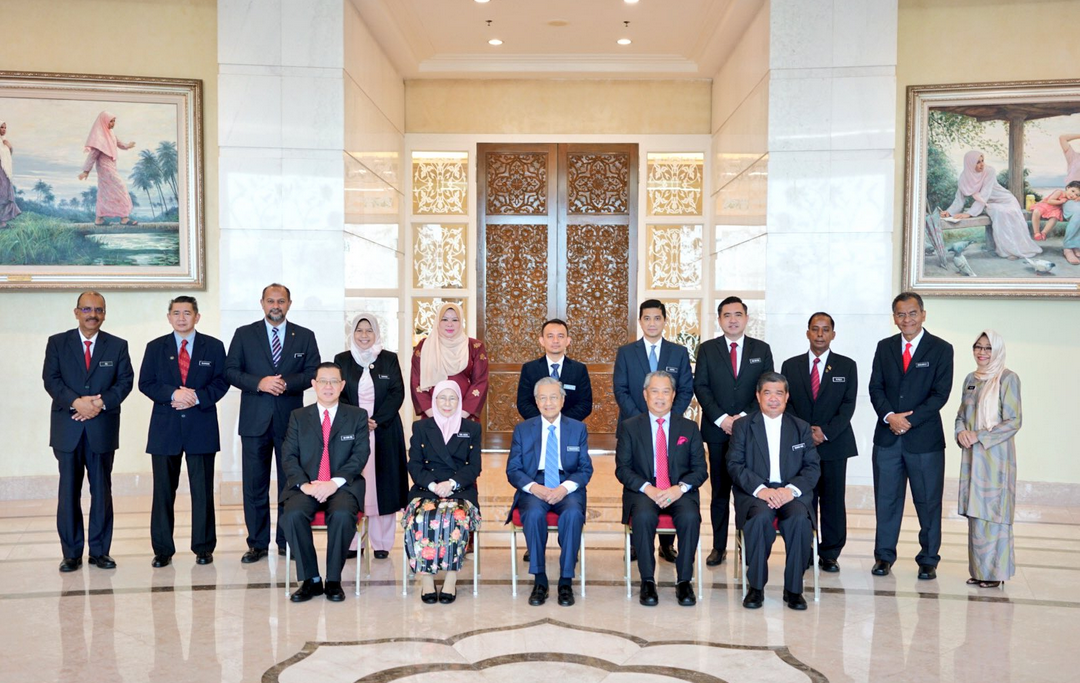KUALA LUMPUR, May 10 — To the uninitiated, the twists and turns of Malaysian politics over the past year may seem baffling.
Supporters of Pakatan Harapan (PH) who helped the pact win the 14th general election last year are now not shy to train their guns on them, while the government itself seems to have thrown some of their ardent supporters under the bus.
To understand the quagmire that is faced by PH in its first year and what it must do for the rest of its term, Malay Mail looks at four issues that can be illustrated in four charts:
1. Honeymoon for PH long over, especially among the Malays
A change in government after six decades has seen immense public expectation dumped on Pakatan Harapan's shoulders, on top of cynicism from BN supporters.
Public mood over the leadership of Prime Minister Tun Dr Mahathir Mohamad can be gauged by his approval rating which, despite disputes among several pollsters, can be seen as clearly sliding over the past year.
In addition, Merdeka Center revealed last month that the PH administration’s approval rating had plunged from 71 per cent to merely 39 per cent between August 2018 and March 2019.
Compared to that, Dr Mahathir’s personal popularity is relatively higher at 46 per cent, but that is skirting ever closer to Datuk Seri Najib Razak’s last approval rating of 38 per cent just before the general election.
Of note is the confidence of the Malay community in Parliament, politicians in general, and political parties have all dropped over the last 12 months — even as the confidence of the ethnic Chinese and Indians have increased.
2. Bersatu holds fragile power within PH
The formation of Parti Pribumi Bersatu Malaysia chaired by Dr Mahathir ostensibly swayed a lot of Malay votes and confidence towards PH leading to the pact’s eventual win, by offering an alternative to the Malay-majority Umno.
Despite its chairman, and president Tan Sri Muhyiddin Yassin both holding significant ministerial positions, Bersatu won just 13 seats in GE14, far below senior partners PKR and DAP.
This ostensibly contributed towards its policy of opening its doors to Umno lawmakers who jumped ship and establishing a chapter in Sabah, despite the presence of ally Parti Warisan Sabah there. So far, nine Umno MPs have joined Bersatu.
This lax attitude of embracing former Umno men has not only rankled Bersatu’s allies, notably PKR’s Nurul Izzah Anwar who will likely leave politics in protest, but will perhaps only strengthen the conservative Malay-Muslim agenda carried over from BN.
3. Non-Malays hardly dominate Putrajaya, but not to Opposition
Just ahead of the anniversary of May 9, the Islamist lobby coalition Ummah held yet another street protest over a string of unrelated issues, masked behind the pretense of “protecting the sovereignty of Islam.” Naturally, it was backed by Opposition parties Umno and PAS.
The false perception that PH has sidelined the majority Malay-Muslims has been milked for a long time, but it was arguably kickstarted by the announcement of PH’s Cabinet that was much more inclusive and representative of Malaysia’s diverse population.
Despite accusations that DAP — and by extension, the ethnic Chinese — are dominating the Cabinet, the number of Chinese ministers is exactly the same as it was during Datuk Seri Najib Razak’s administration and the proportion only looks bigger since PH has shrunk down the size of the Cabinet.
However, the appointment of non-Muslims to positions such as the finance minister, attorney general, and then chief justice have been manipulated to spark ethno-religious tensions, and continues to haunt PH at every turn.
4. Emotions run high as life gets harder
In a bid to shore up support from Malay voters, some in Putrajaya have instead doubled down on Islamic issues, and cracked down on sexual and gender minorities. Being held ransom by ethno-religious issues has also affected Putrajaya’s policies and decision-making.
However, this may mean little when Merdeka Center’s poll showed that ethno-religious issues, especially the preservation of Malay rights, came third when it comes to the most important issues that need to be addressed — even among Malays themselves.
Inflation remains the topmost concern of more than half of Malaysians polled, and this was also reflected in Malay Mail’s straw poll of voters ahead of the one-year anniversary where voters remain anxious about the rising cost of living on top of a cutdown in handouts.
The Consumer Price Index (CPI) has shown a steady rise after dipping slightly when PH took over and zero-rated the Goods and Services Tax. The introduction of new fuel price mechanisms managed to cut down transport inflation, but even that has since crept up.



















